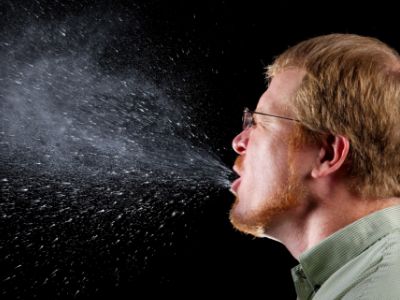Pharyngitis: Symptoms, Stages, Causes and Treatment

What is Pharyngitis?
Pharyngitis is an inflammation of the pharynx, resulting in a sore throat. It is typically a symptom, rather than a condition. It is usually caused by viral or bacterial infections, such as the common cold and flu. Both viral infections or bacterial infections with the Streptococcus bacterium in your strep throat can also occur.
Signs and Symptoms of Pharyngitis
Symptoms of Pharyngitis can vary depending on the cause. It includes:
- Pain that worsens with swallowing or talking
- Pain or a scratchy sensation in the throat
- Difficulty swallowing
- Sore, swollen glands in your neck or jaw
- Swollen, red tonsils
- White patches or pus on your tonsils
- A hoarse or muffled voice

Infections causing a sore throat might result in other symptoms, including:
- Sneezing
- Headache
- Cough
- Runny nose
- Body aches
- Fever
- Nausea or vomiting
Seek help If you or your child, has severe signs and symptoms such as:
- Difficulty breathing
- Difficulty swallowing
- Unusual drooling, which might indicate an inability to swallow
Causes of Pharyngitis
Viruses that cause the common cold and the flu also cause sore throats. Less often, bacterial infections cause this condition. Viral illnesses that cause a sore throat include:
- Common cold
- Flu or influenza
- Mono or mononucleosis
- Measles or Chickenpox
- Coronavirus disease 2019 or COVID-19
Other causes of pharyngitis include:
- Irritants. Outdoor air pollution and indoor pollution such as tobacco smoke or chemicals can cause a chronic condition. Drinking alcohol, chewing tobacco, and eating spicy foods also can irritate your throat.
- Muscle strain. You can strain muscles in your throat by yelling, talking loudly or talking for long periods without rest.
- Gastroesophageal reflux disease or GERD. GERD is a digestive system disorder in which stomach acids back up in the food pipe or esophagus.
- HIV infection. A sore throat and other flu-like symptoms sometimes appear early after someone is infected. HIV-positive patients might have a chronic or frequent sore throat due to a fungal infection called oral thrush or a viral infection, which can be serious in people with compromised immune systems.
- Allergies. Allergies to pet dander, pollen, dust and molds can cause a sore throat. The problem may be complicated by postnasal drip, which can irritate and inflame the throat.
- Dryness. Dry indoor air can make your throat feel rough and scratchy. Breathing through your mouth often because of chronic nasal congestion can cause a dry throat.
- Tumors. Cancerous tumors of the tongue, throat or voice box or larynx can cause pharyngitis. Other signs or symptoms may include hoarseness, noisy breathing, difficulty swallowing a lump in the neck, and blood in saliva or phlegm.
Treatment and Management of Pharyngitis
The treatment of this condition depends on its cause and severity. For bacterial causes, doctors often recommend antibiotics. Ensure to take your medications as per directed by doctors for the utmost benefits. Pain relievers are also given to ease pain caused by swelling in the throat.
Medication Used for Pharyngitis
Clarithromycin. It is used to treat different bacterial infections like a sore throat. works by preventing the growth of infection-causing bacteria and stops the bacteria from growing by interfering with the protein synthesis in bacterial cells.

Lifestyle and Home Remedies for Pharyngitis
- Rest and drink fluids. Get plenty of sleep. Rest your voice, too. Fluids keep the throat moist and prevent dehydration. However, avoid caffeine and alcohol, which can dehydrate you.
- Humidify the air. Use a cool-air humidifier to eliminate dry air that may further irritate the affected area. Ensure to clean the humidifier regularly so it doesn’t grow mold or bacteria or sit for several minutes in a steamy bathroom.
- Consider lozenges. It can soothe a sore throat, but don’t give them to children age 4 and younger because of choking risk.
- Try comforting foods and beverages. Warm liquids broth, caffeine-free tea or warm water with honey and cold treats such as ice pops can soothe a sore throat. Don’t give honey to children younger than age 1.
- Gargle with saltwater. A saltwater gargle can help soothe a sore throat. Children older than 6 and adults can gargle the solution and then spit it out.
- Avoid irritants. Keep your home free from cigarette smoke and cleaning products that can irritate the throat.
- Stay at home until you are no longer sick. This can help protect others from catching a cold or other virus.



